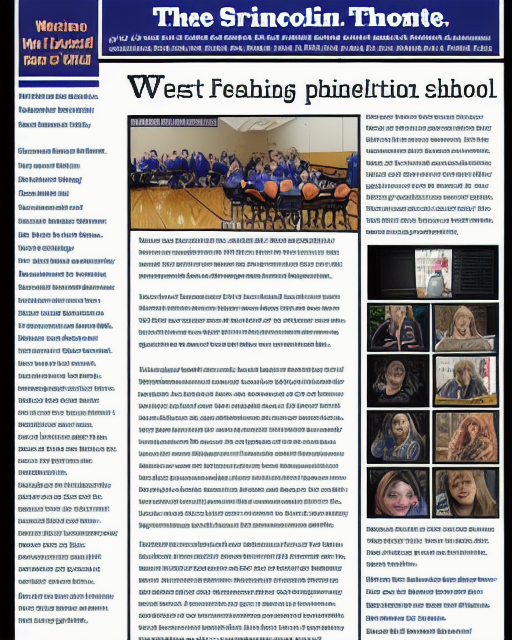Pandora’s bot
Artificial Intelligence (AI) is changing the way we live, work and learn. In education, AI has the potential to transform the entire learning experience, making it more personalized, efficient and accessible.
One of the biggest advantages of AI in education is personalization. AI algorithms can analyze students’ learning patterns, strengths, and weaknesses and create individualized learning plans that cater to their needs. This can lead to increased engagement and motivation, and result in better academic performance.
AI can also improve the efficiency of the education system. For example, AI-powered tools can grade assignments, provide feedback and even teach certain subjects, freeing up teachers’ time for more meaningful interaction with students.
Moreover, AI can increase accessibility to education, especially for students in remote or underserved areas. Through online education platforms, students can access high-quality education from anywhere in the world, and at any time.
However, there are also some concerns about the impact of AI on education. There is a risk of relying too much on AI-generated content, which may reduce critical thinking and creativity. It is also important to ensure that AI-powered tools are designed with accessibility and ethics in mind, so that they are not biased and do not perpetuate existing inequalities.
In conclusion, AI has the potential to revolutionize education, but it is important to approach its integration with caution and consideration. By using AI in a responsible and thoughtful way, we can reap its benefits and create a better future for education.
The above article was not written by Brendan Talbot, or even a human. The entire above article was generated from the following simple 11-word prompt: “write a news article about the rise of AI in art.” The AI site, ChatGTP, produced this article for free within seconds of submitting the prompt.
AI, considered to be in the realm of science fiction just a few years ago, is now very much a reality. A multitude of readily available and free websites now populate the internet, offering all sorts of AI services. Art, music, writing, code and many other tasks long considered safe from the slow creep of automation due to their “creative” nature can now be done effectively, quickly and, most importantly, cheaply by a computer.
“Artificial intelligence has the potential to revolutionize education, providing personalized and adaptive learning experiences for students, freeing up teacher time, and transforming the way we think about knowledge acquisition,” said AI ChatGTP.
Not only will AI have an impact in the workplace, it will and is already having an impact in schools. ChatGTP and other writing bots threaten to do to English what calculators did to math.
“English teachers in the county are freaking out about [AI],” said English teacher Leana Jensen. “[AI] is certainly the future.”
“It’s a revolution that’s gonna make a lot of change, and if teachers don’t adapt to it, it’s gonna make a lot of aspects of school useless,” said sophomore Ben Peasley.
For students, ChatGTP and other AI’s allow one to take cheating to a whole new level. AI cheating programs have existed in objective subjects like math or science for a while now. Websites such as Mathway or Photomath allow students to easily solve complex equations. Never before however has an AI that can solve subjective problems or questions existed, until now. Writing is one of the few subjects that has so far been mostly immune to cheating. While plagiarism has always existed, there are a multitude of tools available online that can counter or detect it. AI generates entirely new content, often indistinguishable from human made content. Some enterprising students have already started using it to help them in school.
“I have used AI in school multiple times, either for answers to assignments or for help with difficult questions and problems,” said an anonymous junior. “I find it useful as it can find answers to problems that otherwise wouldn’t have specific answers online, like historical questions on more niche and specific topics. I have not been caught using it when I’m not supposed to, which could show the negative side effect of the AI. If it continues to rise in popularity, it will be difficult for teachers and administrators to see what is a student’s work and what is just taken from an AI.”
AI use is already widespread, with the most popular AIs such as ChatGTP frequently at capacity due to all the people trying to utilize them. Despite AI’s growing prevalence and proficiency in generating realistic work, its words lack one key feature: humanity.
“Artificial intelligence doesn’t replace the humanity of being human,” said Jensen. “[AI] really takes away the authentic voice of the writer, so a lot of times I can tell when something is not their voice simply because they’ve copied and pasted it.”
To a human observer, especially one familiar with a student’s work, it can be easy to tell when a student’s words don’t sound like they wrote them. While AI currently can’t fully replace the human element, it won’t be long until it can.
“I think it’s very dangerous to start replacing authentic learning and thought with AI because it really takes the focus off responsibility and personal intelligence off the person, and that’s scary, what are people if they don’t have their own thoughts?” said Jensen.
AI is and will continue to have an impact on almost every aspect of human life. It will have far-reaching consequences and effects we can’t even imagine. AI can be incredibly beneficial, but also incredibly dangerous, and only one thing about it is certain: it’s here to stay. Now that the AI box has been opened, it can never be closed.






